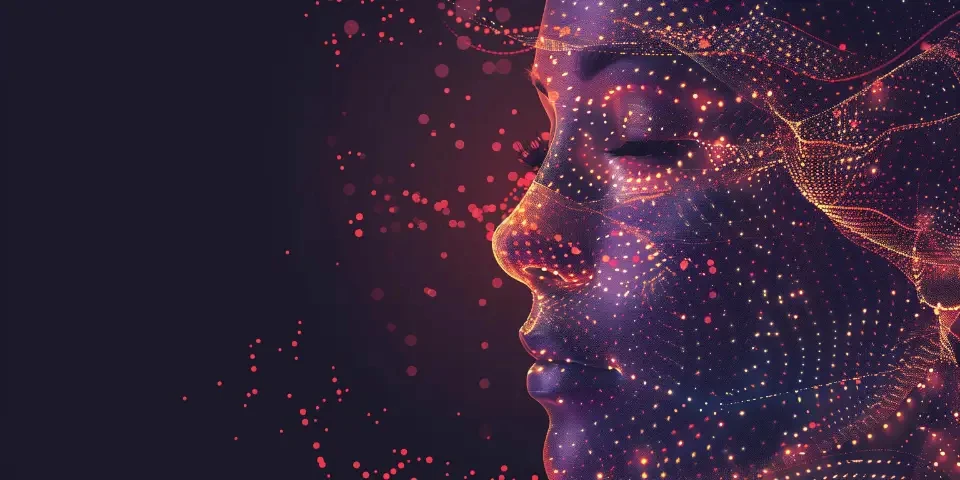Artificial Intelligence (AI) has revolutionized various industries, and the world of music is no exception. Synthesizers, which have traditionally been used to create electronic sounds, are now benefiting from the power of AI to adapt and learn. This integration of AI technologies with synthesizers is revolutionizing the way musicians create and perform music. In this article, we will explore the diverse ways in which AI-powered synthesizers are transforming the music industry.
1. Machine Learning Algorithms for Sound Synthesis
AI-powered synthesizers utilize machine learning algorithms to analyze and synthesize various types of sounds. These algorithms can learn from a vast amount of audio data and replicate complex sounds with remarkable accuracy. By training the AI model on existing sound samples, musicians can generate new and unique sounds that would be challenging to create manually.

Furthermore, these synthesizers can adjust their parameters in real-time based on the input and optimize the sound output. This adaptability allows musicians to experiment with different sounds and create compositions that are otherwise unattainable.
2. Interactive Interfaces for Music Creation
AI-powered synthesizers often employ interactive interfaces that enhance the user experience. These interfaces enable musicians to control and shape sound synthesis using gestures, facial expressions, or even brain signals. The synthesizer can interpret these inputs and generate sound accordingly, providing an intuitive and immersive musical experience.
Additionally, AI algorithms can learn from the musician's playing style, adapt to their preferences, and enhance their creativity. By analyzing patterns in the musician's compositions, the AI-powered synthesizer can suggest new melodies, harmonies, or rhythm variations, serving as a collaborative tool for artists.
3. Real-Time Performance Enhancements
AI allows synthesizers to offer real-time performance enhancements, transforming the way musicians perform live. With the integration of AI, synthesizers can analyze the musician's playing style and adjust the sound output to complement their performance. This adaptive functionality helps create a seamless and harmonious integration between the musician and the instrument.
Furthermore, AI algorithms can generate live accompaniment based on the musician's playing, providing a dynamic and responsive musical environment. This not only enhances the solo performance, but also allows for interactive improvisation with the AI system.
4. Creating Synthetic Voices and Vocal Effects
AI-powered synthesizers can revolutionize vocal synthesis by creating realistic synthetic voices and vocal effects. By training the AI model on a vast dataset of human voices, the synthesizer can produce speech that is indistinguishable from a natural human voice. This technology opens up new avenues for voice acting, dubbing, and even aiding individuals with speech disabilities.
Moreover, AI algorithms can create unique vocal effects by manipulating the synthesized voice, such as gender modification, pitch shifting, or adding emotional nuances. Musicians can experiment with these effects to produce compelling and out-of-the-box vocal performances.
5. Expressive and Dynamic Sound Generation
AI-powered synthesizers excel at generating expressive and dynamic sounds, providing musicians with a broader range of sonic possibilities. By analyzing the input parameters and employing sophisticated algorithms, these synthesizers can create nuanced sound textures, complex modulations, and evolving timbres.
Additionally, AI algorithms can generate real-time variations in sound characteristics, reproducing the imperfections and fluctuations inherent in acoustic instruments. This adds a human-like touch to electronic music and allows electronic musicians to create more organic and emotional compositions.
6. Comparison: AI Synthesizer Software
There are several AI synthesizer software available in the market, each with its unique features and capabilities:
a. Magenta Studio:
Magenta Studio, developed by Google Research, offers a suite of AI-powered synthesizers and music plugins. It leverages machine learning algorithms to assist musicians in generating melodies, harmonies, and drum patterns, allowing for collaborative music composition.
b. WaveNet:
WaveNet, developed by DeepMind, is a deep learning-based synthesizer that focuses on creating realistic and high-fidelity audio waveforms. It uses a deep neural network to synthesize raw audio samples, enabling the generation of expressively rich sounds.
7. Frequently Asked Questions
Q: Can AI synthesizers replace human musicians?
A: AI synthesizers complement human musicians by enhancing their creativity and offering new musical possibilities. They cannot entirely replace the artistic expression and emotional depth that human musicians bring to their performances.
Q: Are AI synthesizers accessible for all musicians?
A: Yes, many AI synthesizer software offer intuitive interfaces and user-friendly controls, making them accessible to musicians of all skill levels. However, mastering these tools may require some learning and experimentation.
8. Conclusion
AI-powered synthesizers are revolutionizing the music industry by providing musicians with new tools for exploration and experimentation. These synthesizers enable the creation of unique sounds, enhance performances, and push the boundaries of traditional music composition. As technology continues to advance, we can expect even more exciting developments in the field of AI-powered music synthesis.
References:
[1] Google Magenta Studio: https://magenta.tensorflow.org/studio
[2] DeepMind WaveNet: https://deepmind.com/blog/article/wavenet-generative-model-raw-audio
At Wemate AI, we’re rewriting the rulebook on what constitutes snack time! Join the crusade where cookies and nachos unite for world deliciousness!






